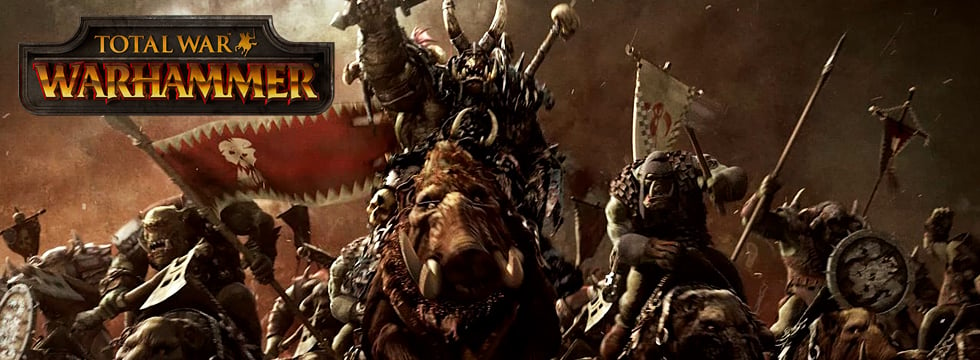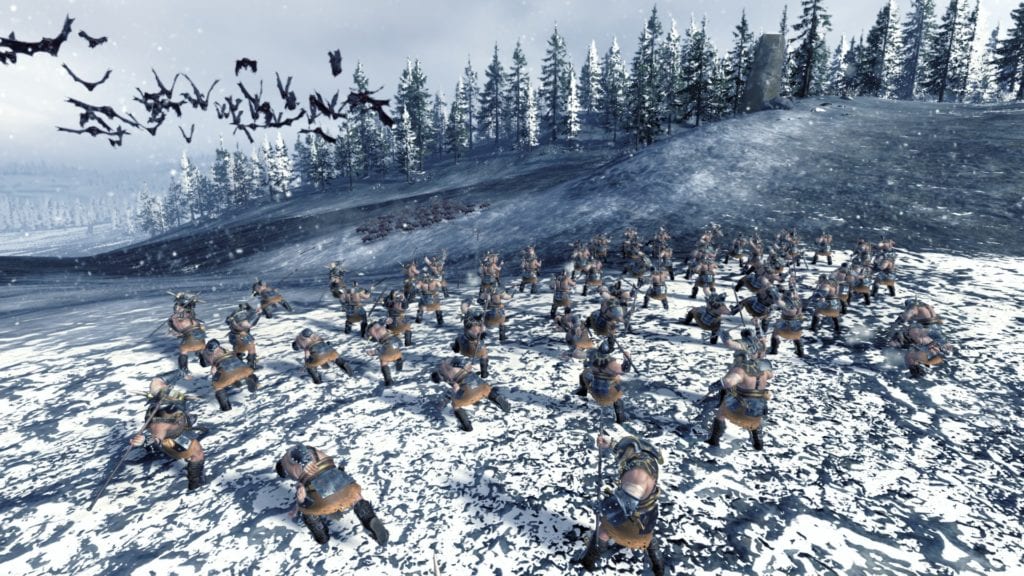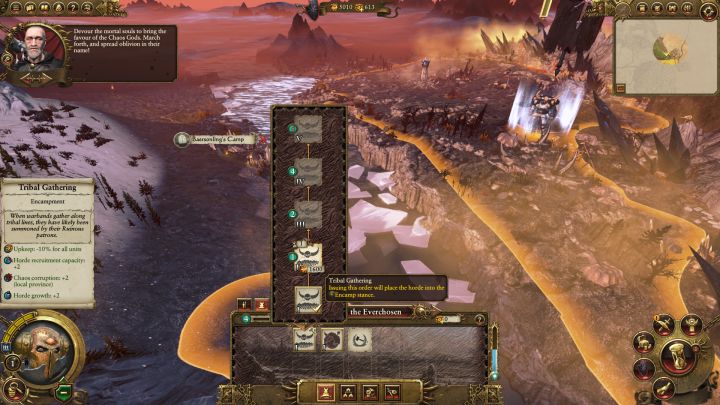Total War Warhammer Faction Guide
Contents.Overview Similar factions are grouped together into Races or other categories. Races have unique battle and other gameplay mechanics that set them apart from each other.Most factions may be seen in the, though which factions appear will differ depending on the campaign. A few factions (such as ) only appear in. For complete lists of all the factions in the various campaigns, please see the navboxes at the bottom of the page.In the campaign, factions raise of units, which move around the campaign map and battle other armies, or take settlements. Faction may engage in with one another, and can even with other factions of the same race if conditions are right. A faction is destroyed when it controls no more armies or settlements.A faction is served by such as (who lead armies) and (who have a variety of uses both in battle and out of it).RemovalSometimes factions are from a campaign, in which case they no longer appear in that campaign.Types Playable factions Major factions or playable factions are those which the player can potentially play as. Even when the player is not playing as them, they still appear on the map.

Each major faction is led by one or more.Which factions you can play differs depending on which game you are playing, which campaign, the free DLC you have downloaded, and which paid DLCs you own. For full lists of playable faction, please see the navboxes section below. If a faction requires a manual free download, or requires paid DLC, it will be listed on that faction's page.Minor factions Minor factions are less important factions, which are not led by legendary lords. They are often less aggressive and expansionist than major factions. They are not normally playable, though there exists unofficial faction unlocker mods to make them playable. Players can interact with minor factions using diplomacy and warfare.Many minor factions will appear on the map at the start of the game.
In most campaigns, a majority of the map will be controlled by minor factions.Hordes factions do not control settlements, instead each horde army can enter to construct. Hordes may be major or minor factions.Rebels Rebel factions form when in a settlement reaches -100. Please see the public order page for more details. Rebel factions are not playable.Rogue armies are semi-horde factions introduced in which can have units from several different races. Rogue armies are not playable.Other factions Many other minor factions in the campaign only appear under special circumstances, and this can be different for each campaign.
For instance factions or factions.Races A Race or category is a group of similar factions which generally use the same units and game mechanics. Each race featured in the game, such as the, carries certain racial traits and mechanics which grant factions of that race unique abilities, advantages and disadvantages; which set it apart from all the other races.
Factions of a particular race usually receive a bonus to relations between each other, and therefore tend to stick together.Some factions are also the main or 'flagship' faction for their race, such as. In these cases, the faction will share the same name as it's race.In other cases, a faction's name will be different to it's race.
These are sometimes called subfactions.A faction's race/category will be listed below it's name when conducting diplomacy.See below for a list of racial categories in the game.Race/faction and diplomacy Main article:Race and faction affects diplomacy. Factions of the same race or group have a diplomatic bonus towards each other.
See the page for a table detailing all the diplomatic racial biases. In the campaign, completing causes the other competing factions to dislike your faction. In some campaigns there is a which strongly affects diplomacy via the trait given to certain factions.Also, in Total War: Warhammer II, the and factions have a large diplomatic attitude bonus towards each other, representing that and are family. Meanwhile, the faction is unable to engage in any diplomacy with other factions.Factions of the same race may if conditions between them are right.
After so much waiting, Total War: Warhammer finally has a playable Bretonnia faction! It's a free expansion so your game should have automatically updated to include it. If like me, you immediately got excited, fired up a campaign and then got stomped, this is the guide for you.Keep in mind that as I write this guide, it's been less than a week since the expansion launched so I won't boast that this is the optimal way of playing, only that this is a general guide to point you in the right direction. I'll try my best to keep this up to date as new discoveries and strategies are made. So, come gather round my young knights-to-be, let's discuss the most important virtue for you: Honour. Chivalry is a unique mechanic to the Bretonnian factions and it's incredibly important so pay attention here.Chivalry is measured like a resource during the Grand Campaign and can be seen at the top of your screen. Chivalry is measured in stages, each giving a better reward than the last.
Honourable actions will increase your Chivalry, giving you access to better bonuses such as higher leadership, and access to summon The Green Knight during battle, a massive powerhouse of a unit. Dishonourable actions will lower your Chivalry, leading to you taking penalties for being a cur.So, what does this mean for you? Let me give an example.At the beginning of the campaign, Marienburg is at war with you for some reason. Your army, lead by Louen Leoncoeur, one of the manliest men to ever roam the world, marches in and takes Marienburg away from those filthy peasants who currently reside in it. In spite of that, your enemies are still human and so courtesy is expected of you. Sacking or razing the city is dishonourable and will cause you to lose Chivalry, as even though you won the fight, you are expected to do well by the citizens you have just conquered.
Occupying the city suffers no penalties however.Near Marienburg in the mountains is an orc tribe. Assuming that Leon Leoncouer has felt the lust for battle and proceeded to march up the mountains to spread his manliness to the greenskins, you'll be in for a quick and easy siege. As the settlement is an orc/dwarf dwelling, it cannot be occupied. Looting the settlement will make you lose Chivalry, as looting is generally not seen as a noble action to take. Razing the settlement however will make you gain Chivalry, for wiping out threats to the human population such as Orcs, Beastmen, Chaos or Undead IS a noble thing to do.Keep all of this in mind when planning your campaign strategy. At the heart of any kingdom lies the Peasants who toil to keep the cogs of the machine turning. They are your farmers, your blacksmiths, your tailors and innkeepers, the masons and thatchers and so on.
Well, in TW:WH, this isn't true, peasants are exclusively farmers. This is their role in the world no different to the Empire, so how does this affect you?Another unique mechanic to the Bretonnians is the Peasant Economy. At the beginning of the game, your Peasant Economy size has a capacity of 10. When recruiting units, Bretonnians have two kinds, Peasants and Knights. Recruiting a Peasant unit will cause your Peasant Economy to increase, and should the value increase to over capacity, your realm suffers for it as you've recruited more than you can sustain. Too many peasants means that no one is farming the land, which will cause you to lose income from all of your farms.What does this mean?Farms are your primary source of income as a Bretonnian, each of your regions should contain both a farm and a mill as these will earn you a good chunk of income as well as increase the capacity for your Peasant Economy.
More farms = more Peasants. Following on from the previous section, why do knights differ from Peasants?1) Knights frequently declare Deus Vult.2) Knights are manlier than peasants.3) Louen Leoncoeur has been established as a manly man and therfore requires manly units.4) Knights have taken the Grail Vow.The Grail Vow is taken by all Knight units which means that they are not affected by the Peasant Economy.
Total War Warhammer Von Carstein Faction Guide

You are free to recruit as many knights as you wish without your realm suffering for it. As expected, Knights cost more but are also much manlier in combat. This is Bretonnia, Manliness = good.However, there's another element to the Grail Vow you need to be aware of. Louen Leoncoeur, being manly and all, has taken then Grail Vow and therfore knights will follow his manly musk into the depths of hell if required. If you recruit a noble lord, they will not have taken the Grail Vow by default which means that knight units will cost more to recruit and maintain.
If you plan on using a lord to command an army, make sure they put a skill point into Grail Vow as soon as possible, or else your economy is screwed. Alright folks enough of the setup, let's discuss how you're going to spread manliness across your realm-to-be.Bretonnia is a strange one to start with because the game is threatened by your manliness. You begin with two settlements, a city and a port town which count as a full region.
Because of this you can issue a commandment straight away. I would recommend going for control (public order) as in single player, you will always face an orc incursion event at the beginning of the game which will cause your control to deteriorate.You will also be at war with Norsca and Marienburg to begin with. Norsca is too far north to actually do anything so don't worry about them, but Marienburg can be a threat if left unattended. Recruit up to your peasant capacity, attach your damsel to your army and immediately march upon Marienburg. Don't even bother trying to fight the siege, just encircle them and wait them out.Why?

Because two reasons. First of all, you will NOT be getting much early game combat in a Bretonnia campaign, so getting some experience from sieging will help Louen in the long run. You can fight the battle when they're about to die of attrition if you so wish to get some extra xp.It isn't 100% vital that you fight Marienburg, but taking them out gives you less stress, it will also let you occupy one of the two paths to your capital for extra defence, Marienburg has a special port that earns you a ton of income when built AND sieging it only serves to increase the manliness of Louen.After that, feel free to stomp over Marienburgs other city and then march up the mountain to deal with the orcs. Like I said, this is about as much action as you're going to get for a while so enjoy it.Next up, technology. At the start of the game, you can only research two fields, one for Chivalry and one for economy. Get the Chivalric Code first. The economy investment increases income from farms but you won't have many to start with so it's not that useful.
The Chivalry research leads to two other researches which you.need. This is your game plan so pay attention.After researching the Chivalry upgrade, you can take two other technlogies and this is where Bretonnia gets interesting. At the bottom left, see those Heraldry researches? Those will not only give you a huge diplomatic boost with the faction, it allows you to form a confederation with them. And this my friends is your game plan.See, at the start of the game, you want to be forming as many agreements with the other Bretonnian factions as you physically can. Keeping good relations with them means that as soon as you finish a Heraldry research, you can add them to your confederation. The advantages of this are as follows:Declaring war on a Bretonnian faction makes you LOSE chivalry.
This means attempting to take these factions via conquest will cause you to suffer.You can expand your realm by waving bits of paper around. No fighting lots of battles, spending money on units and other war expenses, no stress of fighting sieges or losing your own settlements. You can get them for free. Crusader Kings would be proud of you.So in what order do I do this?
Well, so far I've not found the optimal route for this, and even then the order will change based upon how the early game unfolds so here are the pros and cons to each.Artois: Artois sits on the border with the Empire/Empire rebels, taking this early will prevent the Empire from spreading down. The Beastment will also lurk in this area so if you want to beat them up early on, having Artois and an army inside it isn't a bad idea.Parravon: Parravon is a bit of an unfortunate settlement in terms that without Artois, you can't form a trade agreement with them. Getting them on your side is quite tricky and for some reason, in all of my campaigns they get heavily infested with corruption. In all honesty, I don't really consider them a priority to assimilate.Bordeleaux: These folks have settlements on the ocean, meaning you can build ports and therfore make it rain with manly gold pieces. Unfortunately they also border with undead, which we'll get into later.Lyonesse: They're closest to you geographically and probably the first friend you'll make. They're a small faction but easy to assimilate. Totally worth getting to protect the second route to your capital and if you want to fight the undead early on, you need them.Bastonne: Again pretty close to you geographically and in a good spot to launch operations against the undead.Carcassonne: This one is further south and bordering with the elves but totally, totally, totally worth it.
Carcassonne will give you another legendary leader, The Fey Enchantress, a powerful spellcaster who can massively turn the tide of losing battles. You really do want her, but keep in mind as a legendary leader you cannot disband her, so make sure your economy can afford another army before assimilating this faction!Each of these researches takes 6 turns, so unifying the land should occupy you up until turn 36 at the earliest. So keep assimilating the other factions and remember, build a farm and a windmill in every province you get. Also keep good relations with the Empire because you really don't want a war just yet. By the time you start reading this, you should have unified Bretonnia.
Total War Warhammer Torrent
That includes stomping over those filthy undead traitors and claiming all of the realm for yourself. Now that you've unified the land, what next?Well now it's time to look at your new realm and fix it up. Here's what you can do to ge the gears turning:Make sure ALL of your regions have a farm and a windmill. Upgraded as much as they can.
Do it.Upgrade all of your settlements to maximum capacity. Especially your capital, you NEED it at level 5 as soon as you can. To build the grand tournament of course! What are knights without a tournament?Get some paladins. They're a hero unit, each gives you extra chivalry. Make sure all of your armies have at least one paladin inside, they're pretty damned manly on the battlefield so there's no reason not to have one.Any building you can get that will increase Chivalry, GET IT.See, to win as Bretonnia, you have to have 1000 Chivalry (max) and also win the errantry war.
What does that mean for you? Some battles with greenskins. Providing you're able to max out your Chivalry and win the errantry campaign battles, you win the campaign. That's it, that's your end game target here. No beating up Archeon or worrying about Chaos (unless he marches down there in which case get your Manly king to make him regret his own existence), no pulverising the elves (Seriously, they never leave the forest and their garrisons are enormous, taking out the elves is more trouble than its worth), and no panicking about vampires (Other than the filthy traitors that have already been parted with their heads).Providing you do these things, you win. That's really all there is to it, be manly, be chivalrous and above all else, scream Deus Vult as often as you can, as this improves the morale of your knights. You're ready now, Squires, go march out there and make the Lady proud!